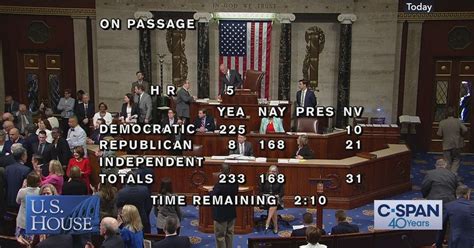| 6/29/2025: How Conservative is Your House Rep? A Comparison of CPAC Ratings and RightDataUSA.com Ratings [RightDataUSA] | |||||||||||||||||||||||||||||||||||||||||||||||||||||||||||||||||||||||||||||||||||||||||||||||||||||||||||||||||||||||||||||||||||||||||||||||||||||||||||||||||||||||||||||||||||||||||||||||||||||||||||||||||||||||||||||||||||||||||||||||||||||||||||||||||||||||||||||||||||||||||||||||||||||||||||||||||||||||||||||||||||||||||||||||||||||||||||||||||||||||||||||||||||||||||||||||||||||||||||||||||||||||||||||||||||||||||||||||||||||||||||||||||||||||||||||||||||||||||||||||||||||||||||||||||||||||||||||||||||||||||||||||||||||||||||||||||||||||||||||||||||||||||||||||||||||||||||||||||||||||||||||||||||||||||||||||||||||||||||||||||||||||||||||||||||||||||||||||||||||||||||||||||||||||||||||||||||||||||||||||||||||||||||||||||||||||||||||||||||||||||||||||||||||||||||||||||||||||||||||||||||||||||||||||||||||||||||||||||||||||||||||||||||||||||||||||||||||||||||||||||||||||||||||||||||||||||||||||||||||||||||||||||||||||||||||||||||||||||||||||||||||||||||||||||||||||||||||||||||||||

Photo credit: CPAC.org
There is more to a congressman than his voting record -- there is his role in sponsoring or facilitating legislation; his role in various committees and subcommittees; providing services for his constituents, and other duties. Only the voting record provides a significant amount of quantifiable data about where he stands on the important issues of the day. Congress takes numerous votes over the course of a year. Many votes are not even officially tabulated -- these are "voice votes" -- but others ("roll-call votes") require an explicit enumeration of the Yeas and Nays.

Photo credit: c-span.org
At RightDataUSA.com, we have a complete record of CPAC/ACU key votes and their results going all the way back to 1970, which is when the ACU began issuing ratings. We have also created our own ratings, based on likely ACU criteria, for the years 1961-1969 for those who are interested in ancient history.
While updating the pages of all 2024 House members to reflect the recently-released CPAC figures, we noticed that in many cases their ratings deviated from our own ratings by a substantial amount. The table below displays data for each congressman -- the CPAC rating, the RightDataUSA rating and the aggregate rating (a combination of CPAC ratings and ours). Right at the top of the chart is one good example of this divergence: Alaska representative Mary Peltola, a Democrat who was defeated for re-election last November, was assigned a 53% conservative rating by us for 2024 but only 22% by CPAC. Peltola, as a Democrat from a supposedly solid "red" state, was forced to masquerade as a moderate in order to have any chance of returning to the House for a second term; she came close but lost by 2.4%. How conservative was she, really? Note that even 22% is a very high conservative rating for a Democrat these days and 53% is stratospheric. In the event of a major difference between our rating and CPAC's rating, the truth typically lies somewhere in between. Peltola's aggregate rating was 40% for 2024.
For 2024: The average GOP representative received a rating of 79% from CPAC and 91% from RightDataUSA. The average Democrat representative received a rating of 2% from CPAC and 9% from RightDataUSA. The average House member received a rating of 41% from CPAC and 50% from RightDataUSA. Why are the two sets of 2024 House ratings so different in many instances? Our evaluations skew to the right as compared to those of CPAC. Of the 441 representatives who participated in House votes in 2024, we assigned a higher conservative rating than CPAC to 353 of them; we assigned a lower rating to only 51 (37 received identical ratings from both sources). Even though RightDataUSA and CPAC are approaching this subject from the same conservative perspective, there was surprisingly little agreement on what constituted a key vote in 2024. Between the 23 votes CPAC selected and the 39 we selected, there were only two which overlapped. Furthermore, there was a considerable differentiation in the type of key vote which was selected. Each key vote can be assigned to one of the following categories:
Many key votes could easily be assigned to multiple categories (e.g. practically every vote has some economic component to it), however we limited all votes to a single classification. As one example, all key votes dealing with border control and/or illegal immigration are classified as Social rather than Foreign because it is much more of a social issue than one of foreign policy; but illegal immigration, like so many other vote topics, has a compelling economic impact as well. CPAC's 23 key votes break down as:
Our 39 key votes were distributed as:
Once CPAC ratings are available for a particular year, we allow them to supersede our own ratings and therefore we display the CPAC data and remove ours (we may update the site to show both datasets shortly). Here is a listing of the 39 key House votes we selected for 2024:
Is there any doubt that these votes were on issues which should be of great importance to conservatives? Why did CPAC omit 37 of these 39 votes? Are economic issues -- which they strongly lean towards -- really that much more important than other issues? Was there a desire by CPAC to choose a set of votes which would yield ratings that match their subjective evaluations of certain representatives? Or are we at RightDataUSA overemphasizing social issues and neglecting economics? It should be apparent that the dual sets of votes were selected independently of each other -- during 2024 we had no idea which votes CPAC was considering and (unless they actually visit this site) they had no idea which votes we deemed to be critical. In 2025 the pattern is similar. There are no CPAC ratings to compare to yet, and there probably won't be any until well into 2026. However our 2025 ratings of House members bear a strong resemblance to the ones we generated during 2024, in the sense of being noticeably to the right of what some folks might consider to be accurate. So far in 2025 we have selected 20 House votes as being key ones. Republicans are for the most part so thoroughly united that nearly all of them score at about 90% -- and it would be closer to 100% if we reversed our position (which corresponds to CPAC's position) on the abominations known as Continuing Resolutions (CRs). These resolutions are a cowardly way for Congress to avoid passing an actual budget, thus allowing government spending, the burden on taxpayers and the national debt to continue to spiral out of control because -- so the politicians claim -- the only alternative is the dreaded Government Shutdown. All Republican politicians live in mortal fear of that, since the Democrat Propaganda Machine known as "the media" will ensure that blame is placed solely on one side of the aisle in the event of a so-called shutdown. CPAC always opposes CRs, and so do we. The pair of CRs among our key votes in 2025 are the only ones in which Republicans as a group get a failing grade because they voted in favor; opposition Democrats therefore get a passing grade for opposing CRs, however ludicrous it may be that a majority of Democrats are assigned to the "right" side on anything. If Republicans have majorities in the House and Senate (which they do) and if they are so united (which nearly all of them are) then why are those majorities not accomplishing more? Clearly it's because those majorities are so extremely narrow. The GOP has some ornery contrarians (like Rand Paul and Thomas Massie), grandstanding war-mongering pricks (like Lindsey Graham) and outright Democrats posing as Republicans (like Susan Collins and Lisa Murkowski). When only one or two votes are needed to thwart legislation, these people and others who occasionally behave like them rise to the occasion and become the liberal media's Queen For A Day. Other times, principled conservatives may refuse to be whipped into line on a particular piece of legislation because they will not concede that it is 15% good while being "only" 85% terrible, and the rebels may temporarily receive Strange New Respect from the media as a reward (a reward full of ulterior motives) for derailing something the media objects to. Summary: It's a good idea to be able to evaluate congressmen to determine whether their performance in Congress is in line with the voters of their districts. Several organizations attempt do that, although most such organizations are ones which obsess over a single issue; therefore their ratings appeal only to voters who share that same obsession. A few organizations, including RightDataUSA.com, evaluate members of Congress over a wider range of issues that is based on a larger sample of votes. However, even groups who are on the same side of the political aisle can disagree about the level of liberalism or conservatism that is expressed via a sample of a congressman's votes. Here we have presented our ratings alongside those from CPAC, and readers can decide for themselves which ones to accept. As we get closer to the 2026 midterms, these evaluations will take on greater significance and we will update our ratings as we did here in 2024. Urban Democrat congressmen must always guard their left flanks in primary elections lest a younger and more aggressive and hate-filled ultra-liberal challenge them. In other districts, Democrats are well aware that "moderation" (fraudulent though it is) is a sensible thing. In both types of districts, the degree to which incumbents are concerned with their re-election chances will be reflected in their votes. On the Republican side, the GOP establishment is never interested in having more aggressive conservatives in Congress, and will help squishy incumbents with financing and by creating "paper conservatives" when necessary, to flood the primary ballot and split the right-wing vote. Even with all that GOPe assistance, supposedly vulnerable left-wing Republican incumbents normally run to the left as elections approach, and that will be apparent in their vote ratings too. To make an educated choice, particularly in a primary election, smart voters will want to know everything they can about the person they are voting for -- or against. Tags: |